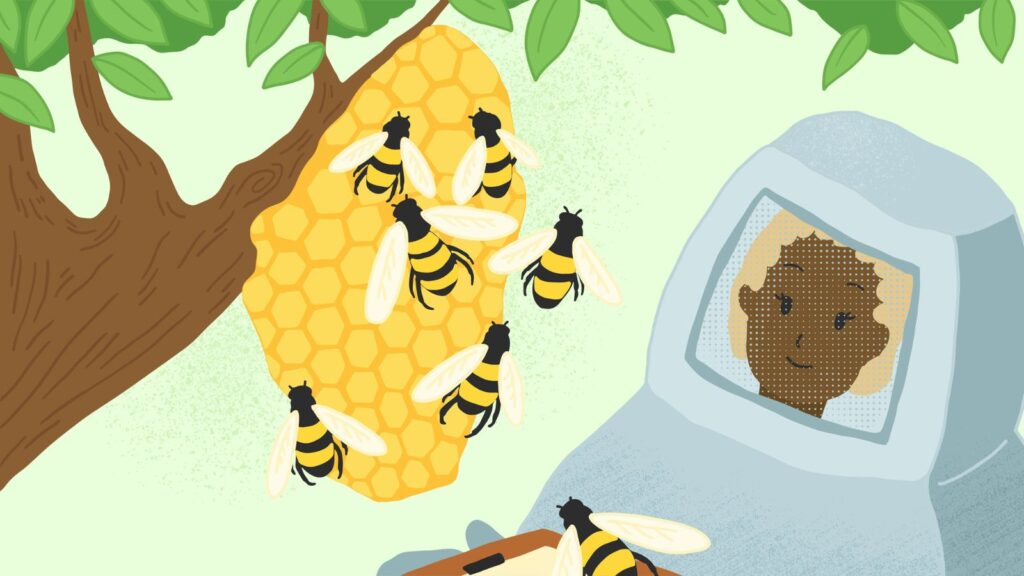The following is excerpted from The Empowerment Manual: A Guide for
Collaborative Groups, published by New Society Publishers.
Please join Starhawk for live events this month in New York and Los Angeles. On
Friday, December 9, at 7:00 Starhawk is speaking
in New York at the Meta Center, 214 West 29th St, # 16. On December 10 and 11, she will be
leading the workshop "The Magic of Co-Creation" at the Commons in
Brooklyn, 388 Atlantic Avenue. And the following Saturday, December 17,
Starhawk will be in Los Angeles offering the workshop "The Magic of Co-Creation" at Fais Do Do
Ballroom, 5257 W. Adams Blvd. Evolver/Reality Sandwich is a media sponsor of
these events.
In many indigenous cultures, elders are accorded great
respect. To be an elder is more than being old; it means being a person who has
learned some wisdom from their life experiences, including their mistakes. An
elder may be someone who has lived a blameless life of complete integrity, or a
recovering alcoholic who knows from personal experience how hard it is to
struggle with an addiction, and so can guide others.
Not everyone old is wise. For some people, aging can simply
rigidify longstanding patterns of dysfunction. And some "elders" may
be young, blessed with good judgment, compassion and sound sense from an early
age.
Groups need elders: people who put the needs of the group
first and help keep its balance. We may become elders and gain social power in
many constructive ways.
By Taking on
Responsibility and Fulfilling It
In a healthy, functioning group, the key way that people
earn social power is by taking on responsibility. Our Spiral Dance organizing
group, which puts on a major ritual each year, says clearly to people in our
outreach material, "The way to have a say in how the ritual is planned is
to take on a coordinating role. That could be coordinating the dancers for the
invocations or coordinating the cleanup – but it means making the time
commitment to organize others. Do that, and you get the inestimable benefit of
coming to meetings and helping to shape the ritual."
By Helping the Croup
Function Smoothly
People who pay attention to social relations, who help
resolve conflicts and mediate problems tend to gain social power in a healthy
group. We respect those who can raise issues effectively, who identify
conflicts and bring them forth so they can be addressed, who help resolve
intransigent disputes and who look for ways to create good feelings in the
group.
By Good Judgment
Elders get to be elders by exhibiting good judgment, being
able to put the good of the group before their own personal benefit or profit,
being able to look ahead, anticipate problems and deflect disasters.
By Making Mistakes
and Acknowledging Them so They Become Part of Group Learning
People often fear to admit mistakes because to do so seems
like losing face. But in a healthy group, a person who admits a mistake and
shares the learning actually gains trust and influence. They become a good
model for others.
By Showing Compassion
and Forgiveness
Elders are not saints: they may get embroiled in conflicts
just like anybody else. But they don't wage vendettas or hold grudges. Instead,
they've learned to confront conflict, forgive those who commit to changing
hurtful patterns and move on.
By Integrity and
Upholding Values
If you stand for something, if you walk your talk, you build
trust and social power. In a healthy group, those who speak for and uphold the
group's core values gain influence – provided they act on those values
themselves.
By Bringing
Experience, Skills and Training to the Service of the Group
If someone is a trained bookkeeper and volunteers to be on
the fundraising committee, their voice will carry more weight than someone who
is inept with numbers – at least around financial issues. People who have
special training, expertise or talent and bring those gifts to the group do a
great service – especially if they are also committed to train others and pass
the skills on.
By Mentoring and
Being Mentored
When we mentor and train others, we pass on some of our
skills and knowledge. When we ask for mentoring, we admit that our mentor has
some quality we want to develop, experiences we can benefit from or knowledge
we would like to gain – that we don't start out as equals in every arena. We
invest our teacher with the authority to advise and guide us, to offer
constructive critiques and to make suggestions that might further our growth.
Groups that refuse to recognize differences in social power
cannot encourage mentoring. Egalitarian groups sometimes resist any structure
that involves teaching or training in favor of skill shares and peer groups. A
good skillshare can introduce people to a new subject or teach a specific
technique – but it does not replace long-term training and development. We
might learn emergency first aid at a skillshare, but when we need brain
surgery, we go to someone who has gone through years of training and
apprenticeship.
When we invest power in a mentor, we remain the active
agent. That power, in a sense, is lent, not given away. When we mentor someone
else, we hold their power in trust. Our commitment is to help further their
development and the good of the group. Our overriding reward comes from knowing
that our skills and knowledge will go on whatever happens to us. In a group
that encourages its members to develop, grow and learn new skills, many people
can eventually take on crucial roles and no one is trapped. We can be free to
move on to our own new challenges, knowing that the work we've done will
continue.
By Commitment and
Time
People gain social power in groups through committing time,
energy and creativity to the group. Someone who has a long-standing commitment
to the group's goals and values should have a larger voice in decisions than
someone who just showed up for the night. If not, why should they stick around?
However, there's another side to
this story. If a group is composed only of long-termers, they may accrue so
much social power that others feel shut out and have no motivation to join.
Founders and original members can stand so tall that, like ancient redwoods,
they shut out the light below them. In old-growth forests, new saplings only
get a chance to shoot up tall when older trees fall and open up the canopy.
Unlimited social power can turn into founder's syndrome, when the founder or
originator of a group can't let go. If a group wants to sustain itself over the
long term, it must put some limits on the social power even of elders to make
space and light for others to take root and grow.
Time and commitment may also
reflect privilege. Someone who has a heavy work schedule and family obligations
may simply not have time to devote to the group, however much they care about
its projects and values. While they may not be able to make day-to-day
decisions or sit in every meeting, a group that serves a wider community must
make room for the voices of those on the edge, as well as in the center.
By Modeling Good
Self-Care
Elders take care of themselves. They commit to the group;
they may devote immense amounts of time and energy to the mission, but they
also take breaks, take naps and take vacations. Elders know that eating,
sleeping, exercising, taking time for relationships, pleasure and beauty are
important aspects of life that ultimately feed the work. They are models for
others, helping to create a group culture that can be truly sustainable.
EXERCISE:
Stepping into Eldership
Ritual
The group may prefer a different word than "elder"
to represent stepping into one's personal power and a role of respect in the
group.
The group stands in a circle. Begin with grounding and
anchoring to the core self.
Take a moment, and ask each person to reflect on the ways
they hold power in the group and exercise some form of eldership. Also consider
where their growing edges are.
One by one, each person steps into the center, states their
name and a way they exercise eldership, followed by "and I do it
well." "l am Eli, I
founded this community and have guided its beginning, and I do it well."
The group affirms the person, by repeating their name, or
with a resounding "Yes!"
Then the person goes on to state some way in which she is growing
into deeper eldership. "Now I'm deepening my eldership by learning how to
gracefully let go and share the limelight with others."
The group responds again,"Yes!"
The first person steps back, and another steps forward.
Continue until everyone has had a chance to be affirmed.
Teaser image by The Elders, courtesy of Creative Commons license.















